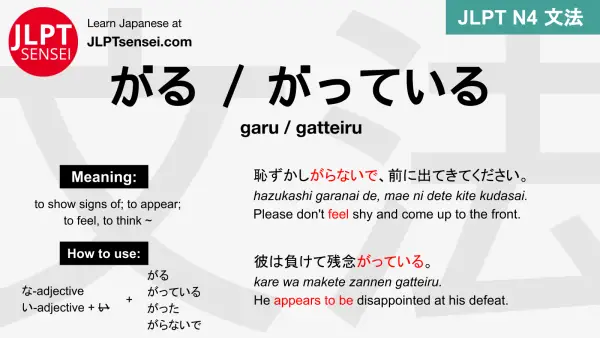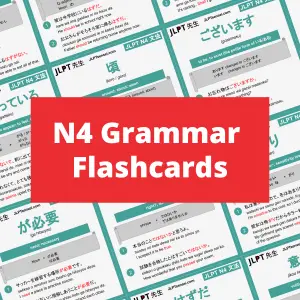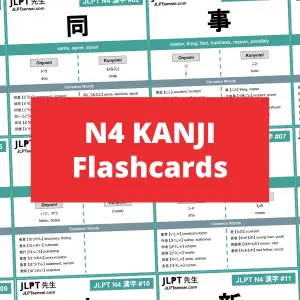Learn Japanese grammar: がる (garu) meaning: to show signs of; to appear; to feel, to think ~.
This grammar point basically turns adjectives into verbs, so the tense can change based on the verb conjugation. Let’s look at some examples:
がる – to show signs of; to feel
General Use
彼は犬を怖がる。
kare wa inu o kowa garu.
He is (appears to be/seems to be) generally afraid of dogs.
Current Tense
彼は犬を怖がっている。
kare wa inu o kowa gatteiru.
He is currently showing signs of being afraid of dogs.
Current Tense
彼は犬を怖がっていた。
kare wa inu o kowa gatteita.
He was showing signs of being afraid of dogs.
ほしがる (hoshi garu) – to want
ほしい + がる combine to express a strong desire or want for something. Of course, any adjective can be converted to a verb, but this form is quite common.
クルーズ先生は新しい自転車を欲しがる。
Cruise sensei wa atarashii jitensha o hoshi garu.
Cruise sensei wants a new bicycle (very badly).
Extra Study Notes
がる (garu) is generally used for speaking in the 3rd person, but it is also acceptable to use it for yourself in some situations.
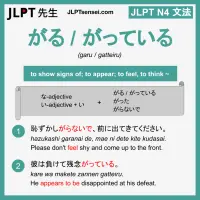
Click the image to download the flashcard.
Download all N4 grammar flashcards.
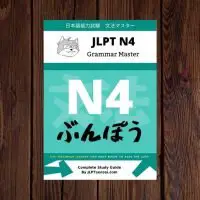
Download our complete
JLPT N4 Grammar Master E-book.
Access ALL extra downloads, ebooks, and study guides by supporting JLPT Sensei on Patreon.
がる / がっている - Example Sentences 例文
Each example sentence includes a Japanese hint, the romaji reading, and the English translation.
Click the below red button to toggle off and and on all of the hints, and you can click on the buttons individually to show only the ones you want to see.
Example #1
怖がらないでください。
Example #2
彼は死ぬのを怖がっている。
Example #3
彼は彼女が欲しがるバッグを買ってあげた。
Example #4
彼は負けて残念がっている。
Example #5
恥ずかしがらないで、前に出てきてください。
Example #6
彼女はその少年をまるで実の子のようにかわいがっている。
Example #7
あんな所に駐車したら近所の人に迷惑がるよ。
Example #8
このバンドが解散したらファンが悲しがるだろう。
Vocabulary List 語彙
| Kanji 漢字 | Kana カナ | English 英語 |
|---|---|---|
| 怖い | こわい | frightening |
| 彼 | かれ | he; him; his |
| 死ぬ | しぬ | to die |
| 彼女 | かのじょ | she; her |
| 欲しい | ほしい | want |
| 弟 | おとうと | younger brother |
| 来る | くる | to come |
| 残念 | ざんねん | regrettable; unfortunate |
| 恥ずかしい | はずかしい | embarrassed |
| 少年 | しょうねん | boy; juvenile; young boy; youth; lad |
| 実の | じつの | true; real; blood-related; biological (father, etc.) |
| 駐車場 | ちゅうしゃじょう | parking lot |
| 悲しい | かなしい | sad |
View all JLPT N4 Vocabulary Lessons

View all JLPT N4 Grammar Lessons
JLPT N4 Study Guide
JLPT N4 Grammar Master [e-book]
Complete Study Guide
This e-book includes every grammar point you need to know in order to pass the JLPT N4, with detailed usage notes and numerous example sentences.
Pages: 293.
Grammar lessons: 131.
